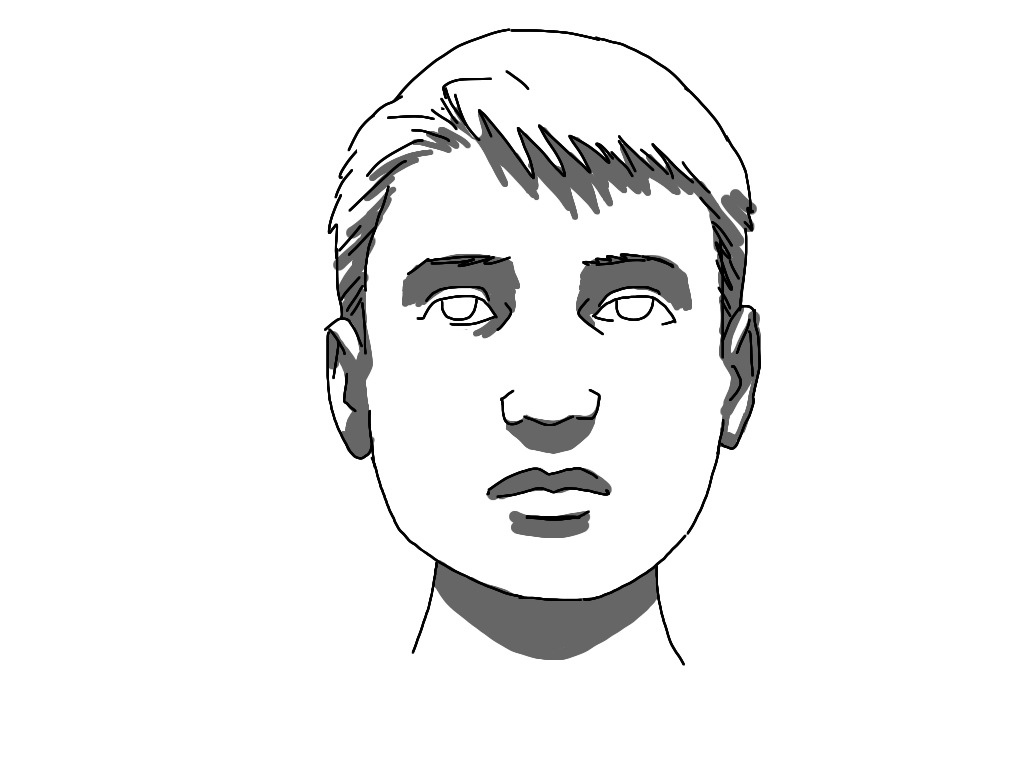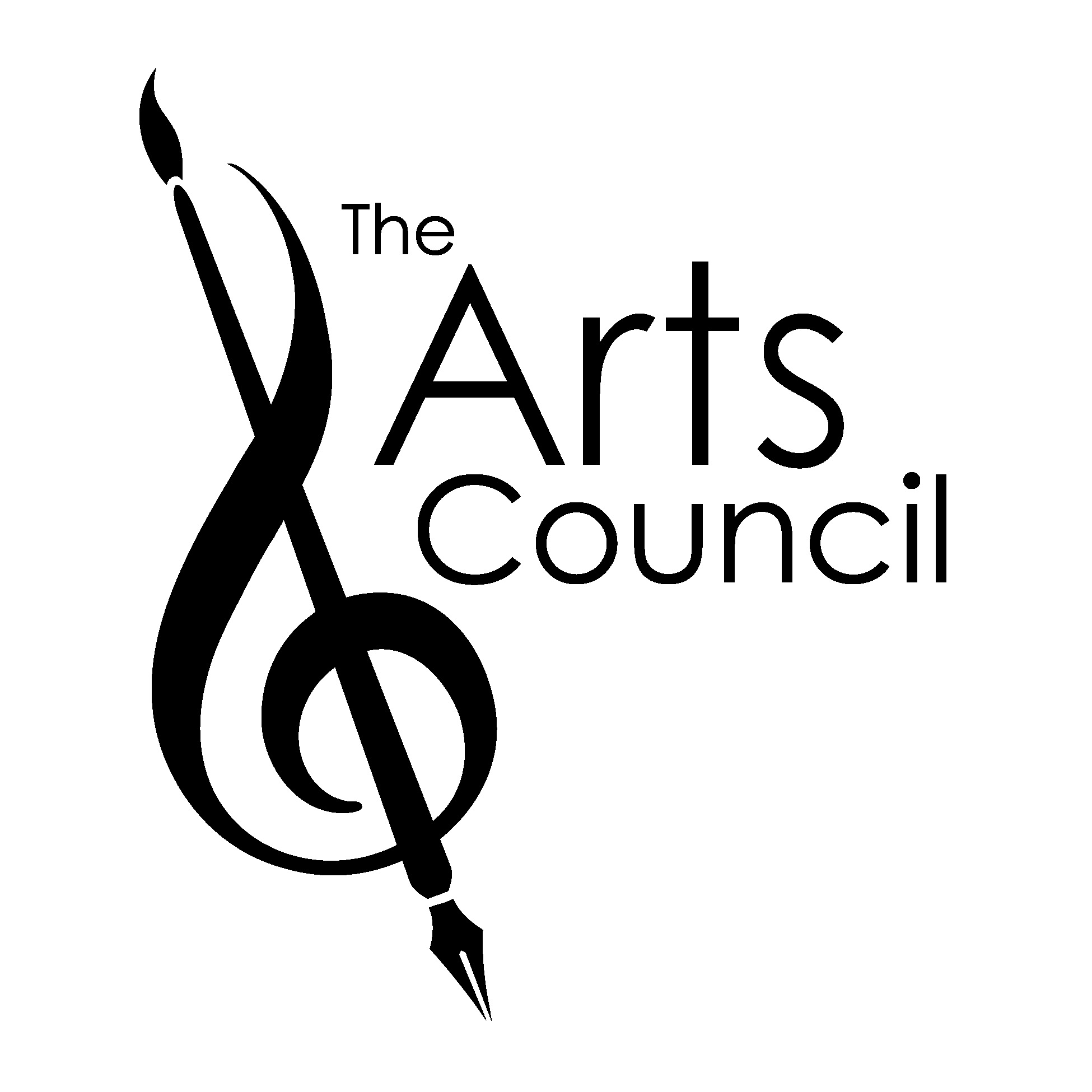

Drawing Light and Shadows
Light and shadows visually define objects. Before you can draw the light and shadows you see, you need to train your eyes to see like an artist.
Values are the different shades of gray between white and black. Artists use values to translate the light and shadows they see into shading, thus creating the illusion of a third dimension.
Hatching and crosshatching are simple and fun techniques for drawing shading.

Bland. That’s how I would describe this face. I obvouiusly drew it like that on purpose to make a point. But without really changing the expression of the character, I can easily make it more interesting to look at, by adding some dramatic shadows.

1: Downlit
The safest way to apply shadow, is under all the features of the face that extrude – The chin, the nose, the eyebrows (and in this case, the hair).
Effect: If applied lightly, like shown here, not much. But it DOES make the drawing quicker to read, as the main features stand out.
Pitfalls: Shading under eyes and chinbones can make characters look very old/bony.

2: Uplit
Oooh, spooky! Who hasn’t held a flashlight under their chin to look like this?
Effect: Dramatic, fearful, scary.
Pitfalls: That shadow on the upper lip could easily look like a moustache. Handle with care.

3: Backlit
Another great dramatic shading technique, allowing you to hide facial details = less to draw!
Effect: Makes the character look menacing and/or makes the reader uneasy, because the expression is unreadable.
Pitfalls: Too much black, and you can’t recognize the character. Too little, and it will look like a smear right down the middle of the face.

4: Sidelit
One of the most used ways of shading is the light from one side. It also helps reader navigation, like if you cut between two characters talking – one would be lit from the left, the other from the right.
Effect: I guess you could go Freudian, and imply split personality, but… In reality, it just looks cool.
Pitfalls: Too sharp lines between the light and dark side will make it look like the person put on half a cowl. Put some dark areas on the light side of the face and blend the lines: Problem solved.

5: Double-lit
Almost the same as above, only with a second light source, to make the face seem three-dimensional and add to the atmosphere.
Effect: Makes it look like you are the best artist in the world! Seriously!
Pitfalls: It’s tricky to tackle both light sources at once, so draw the primary shadow first and then apply the secondary light source in highlights after the fact. Here I added a little more dark to widen the distance between the light sources. It’s also a good idea to make one highlight sharp and the lines on the other more fuzzy.
Homework assignment: Print out a bunch of copies of the shadowless, bland face and test your newly achieved skills!
—
Hey, if you liked these tips, you’re gonna LOVE our newsletter. Sign up now and get more tutorials and bonus content!

